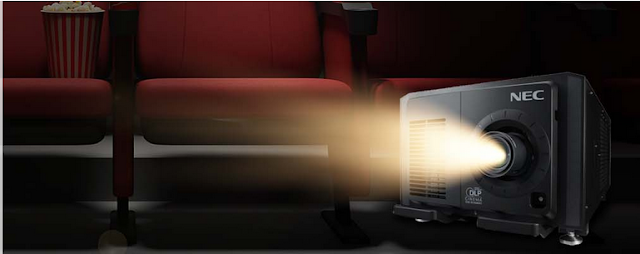Does a homeowner need a DCI-compliant projector?
Owning a projector may cost a person a lot, so it is advisable to choose one wisely. If an owner wants the projector to last as long as one life, it should have state-of-the-art technology. The optical engine is the only thing that makes a difference to a projector, and the best digital projector for home theater should have the right type of optical engine.
Why does the optical engine matter?
Digital Light Processing technology can ensure images of a higher contrast. DLP optical engines have Digital Micro-mirror Devices or DMDs that can affect the resolution and performance of the projector. For the best cinema-viewing experience, the resolution specified by Digital Cinema Initiatives (DCI) is 2048x1080.
A DCI-compliant projector uses 3-chip DLP technology
Digital Cinema Initiatives, a consortium of the world’s topmost production houses, has laid down guidelines that have defined the quality of cinematic presentation. It has been laid down that the contrast ratio should be 2000:1, and the resolution should be 4K. Both these parameters of cinematic quality can be met with the help of 3 Chip DLP technology. This is the reason why all DCI-compliant projectors use 3-chip DLP technology.
How does 3-chip DLP technology help?
The best digital projector for home theater can benefit from a 3-chip DLP technology as the light-reflecting chip is large enough to produce a better resolution. While LCoS uses a similar technology, it may be costly for a homeowner.
The guarantee of an extended life expectancy
Lamps used to be the light source of theatre projectors. But, they slowly shifted to LED and laser as these light sources make the projector last longer. All projectors that are used in cinema theatres have a laser light source. A homeowner can extend the lifespan of the projector to up to 50,000 hours by choosing the one that has a laser light source.
Why do laser projectors work better for homes?
Ultra high-efficiency lamps need to be placed in a certain position to make the projector work better. Laser projectors are versatile as they can be placed at various angles. They can easily project images onto the ceiling or floor to create an immersive experience similar to projection mapping. While laser projectors have a lower latency compared to lamp-based projectors.
Adjustable brightness
Unlike a cinema hall, a person would probably be viewing a movie with an ambient light. The requirement of brightness differs in these conditions. But at the same time, they would like to get the experience they get in cinema theatre by dimming the ambient light. The best digital projector for home theater should ensure adjustability of brightness. The modular light source in the projector will ensure the light output, which is perfectly adjusted to the requirements with exchangeable light modules of 24,500lm, 20,000lm, and 18,000lm for different brightness demands.
Zero-maintenance projectors
Cinema theatres use projectors with a sealed optical engine. The sealed optical engine prevents the ingress of dust and reduces the need to clean the engine regularly. As a result, the projector will perform consistently for a more extended period without any maintenance. Since there are these projectors are filter-less, they do not need filter replacement. The innovative laser light engine ensures that the homeowner does not need to keep a stock of replacement lamps because they have a limited lifespan.
Conclusion
The choice of a DCI-compliant projector for a homeowner is a significant decision. The optical engine, particularly 3-chip DLP technology, is pivotal for achieving cinematic quality. Such projectors offer extended lifespans with laser light sources and adjustable brightness for various viewing conditions. Opting for zero-maintenance, sealed optical engines ensures consistent performance without the hassle of frequent maintenance and lamp replacements, making it a wise investment for home theaters.




Comments
Post a Comment